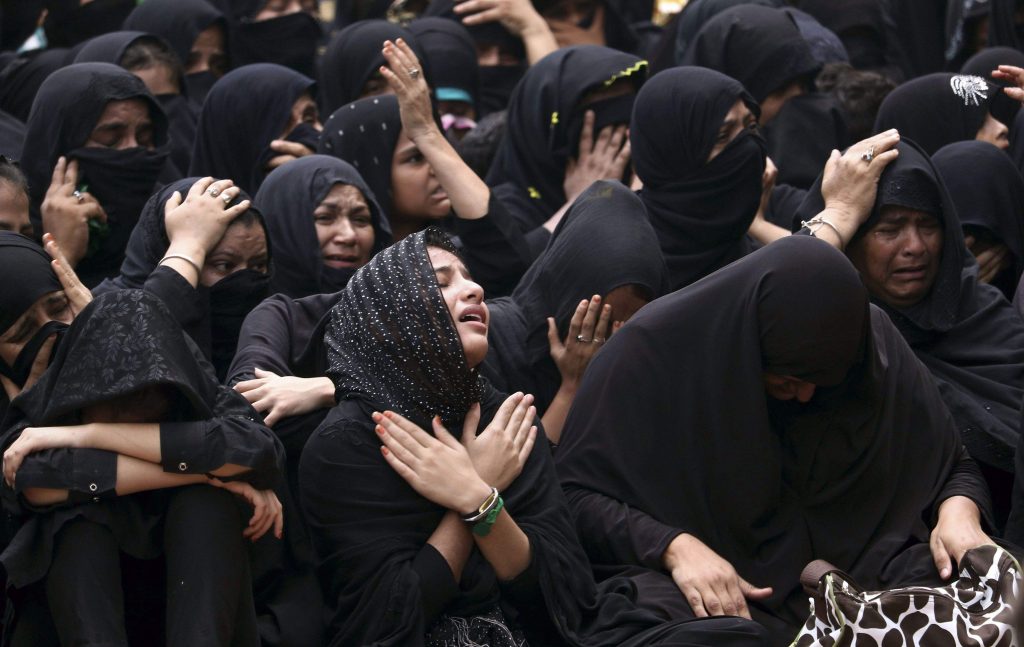
Muharram women rituals in Peshawar Pakistan

Muharram women rituals in Peshawar Pakistan has played a significant role in the Shia community of the country since Shias from various ethnic groups has strengthened their ties with each other, increasing communication and joining each other’s rituals. As a survey showed, Muharram women rituals in Peshawar Pakistan has helped them build unity and ties among the various ethnic groups through their numerous mourning rituals. Male leaders promoted the ritual activities of their female family members. More active than males in Moharram rituals, women attend up to eight rituals a day at homes and hosayniyyehs (buildings dedicated to mourning rituals).
Women usually lead their own rituals, as preachers, rowzeh khans, mourning singers, couplet chanters, readers, and prayer leaders. These women demonstrate far more emotionally expressive and physically active mourning than what could have been witnessed in other countries. They chant and sing together in loud voices, usually standing. Naturally, women do not strip the upper parts of their bodies, as do men. Women nevertheless practiced vigorous self-flagellation. They fling either one or two arms up into the air, and then bring them rapidly back to strike themselves sharply on the chest with either one hand after the other or both at the same time, in time to the singing or chanting.
Shia women reach out to women of other ethnic groups, inviting them to their majales and reminding leaders to include songs and couplets in the different languages. Through their ritual participation, Shia women help to bring Mohajerin (emigrants from India), Pushtun, and Qizelbash Shias into one large community and identity group. In this situation, women do not seem to challenge or question the gender constructions of their religion or their communities. Gender conflict is muted. To support their own interests, women appear to feel that their best strategy was to stick to the “patriarchal bargain” providing labor and allegiance to their men and male-run communities in return for support and protection. Other opportunities are lacking. Women could not live on their own; they feel compelled to obey men and devote themselves to community, family, ethnic group, and religion. If they want satisfying lives and opportunities to develop excellence, they feel that they should look to family, community, and religion, rather than to personal autonomy. During Muharram women rituals in Peshawar Pakistan gender and ethnic differences are muted as Shia women cooperate to commemorate the martyrdom of Imam Husayn and his group and support their co-religionists under siege from the surrounding Sunni population and government.
Taken from: The Women of Karbala
Edited by: Kamran Scot Aghaie